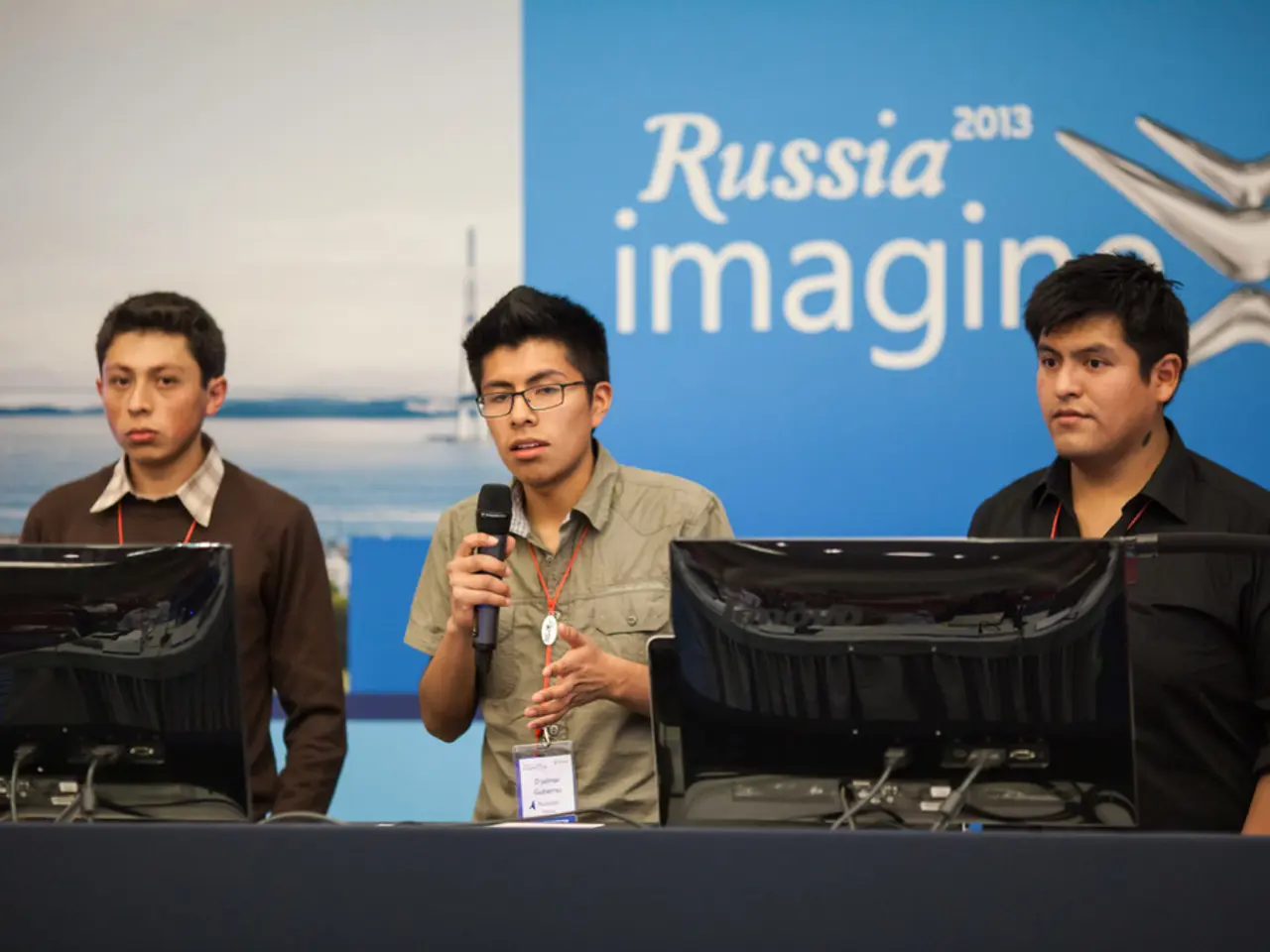Significant discussion taking place between Selensky and Trump
In the ongoing Ukraine-Russia conflict, fundamental disagreements persist, with no ceasefire agreed and peace talks stalled on core issues such as security guarantees, territorial claims, and the sequence leading to a leaders' summit.
Ukrainian President Volodymyr Zelensky has criticized Russia's refusal to agree to a ceasefire, stating that it complicates the situation. The current status of the Ukraine-Russia peace negotiations, which began in 2025 following meetings involving Donald Trump, Zelenskyy, and European leaders, remains in a state of impasse.
Russia demands recognition of all occupied and claimed regions, prohibits Ukraine from joining NATO, and wants curtailments on Ukraine's military, alongside lifting sanctions. In contrast, Ukraine demands full Russian troop withdrawal, return of prisoners and kidnapped children, prosecution of Russian war crimes, and security guarantees against future aggression.
Western security guarantees proposed do not satisfy Russia, which insists on addressing its “legitimate concerns” and demands guarantees aligned with Russian interpretations from the 2022 Istanbul negotiations. These include permanent NATO exclusion and limits on Ukrainian military.
Direct talks between Russian and Ukrainian representatives have taken place, notably in Istanbul, resulting mainly in prisoner exchanges but no substantial breakthroughs. The Kremlin has not publicly refused a meeting between Putin and Zelensky but insists that all preparatory steps—expert groups and document negotiations—must come first.
Trump has expressed frustration with the slow progress and Russia's rejection of a peace deal on his preferred timeline. Meanwhile, Ukrainian President Zelensky has informed Trump that Kyiv rejects a demand by Putin to hand over the still-occupied territories of the Donetsk Oblast to Russia.
As diplomatic efforts continue, Russian forces reportedly make advances in the Kharkiv and Donetsk regions, while the Ukrainian General Staff publishes new figures on Russian troop losses in Ukraine. The Russian air force intercepted and destroyed at least 46 Ukrainian drones over Russian regions during the night.
In a separate development, US President Trump could meet with Russian President Vladimir Putin and Ukrainian President Volodymyr Zelenskyy in trilateral talks as early as this coming Friday. Trump has handed over a letter from First Lady Melania to Kremlin chief Putin, calling for peace and the protection of children, without explicitly mentioning Ukraine.
European backers of Ukraine will discuss their further course of action in a video conference today, with Chancellor Friedrich Merz gently criticizing the staging of the Alaska Summit by US President Trump, which elevated Russian President Vladimir Putin. Meanwhile, military expert Carlo Masala urges Europe to develop an independent strategy to resolve the conflict.
Foreign Minister Johann Wadephul maintains that the initial goal is to achieve a ceasefire for Ukraine, following the Alaska Summit. However, political scientist Thomas Jäger believes that a Ukraine deal will be concluded in the course of the week is "completely implausible."
Russian President Vladimir Putin and his Belarusian counterpart Alexander Lukashenko have discussed the Alaska summit by phone. Russian Foreign Minister Sergei Lavrov has spoken with his counterparts from Turkey and Hungary.
Ukrainian Foreign Minister Andrij Sybiha demands more pressure on Russia to end the Russian war of aggression, while Europe stands firmly by Ukraine's side, whatever Russian President Vladimir Putin plans. Russian forces allegedly shelled communities in the Dnipropetrovsk region with missiles and drones. An employee of the railway is injured and a power line is damaged in a Ukrainian drone strike in the Russian region of Voronezh.
The situation in Ukraine remains complex and tense, with both sides showing signs of willingness to engage in dialogue while also taking military action. The international community continues to call for a peaceful resolution to the conflict, with the hope that diplomatic efforts will eventually lead to a lasting ceasefire and a peaceful resolution to the ongoing dispute.
The ongoing Ukraine-Russia conflict, marked by unresolved core issues like security guarantees, territorial claims, and the sequence leading to a leaders' summit, has resulted in an impasse in the peace negotiations that began in 2025. Ukrainian President Volodymyr Zelensky has expressed criticism towards Russia's refusal to agree to a ceasefire, stating that it complicates the situation.
Russia's demands, comprising recognition of all occupied and claimed regions, prohibition of Ukraine's NATO membership, and curtailments on Ukraine's military, contradict Ukrainian demands for full Russian troop withdrawal, return of prisoners and kidnapped children, prosecution of Russian war crimes, and security guarantees against future aggression. These conflicting policies highlight the complexity and tension within the community and politics surrounding the general news of the conflict.








